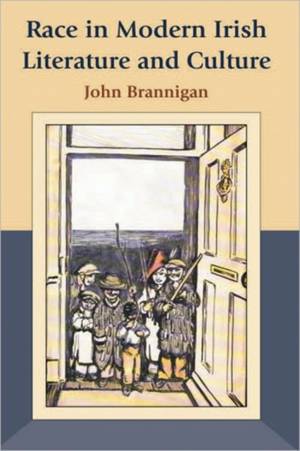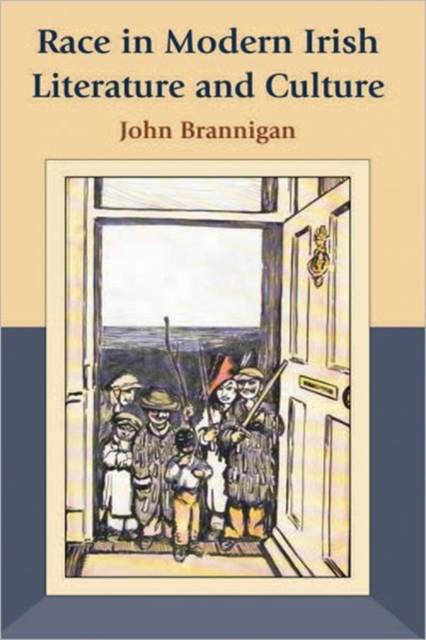
- Retrait gratuit dans votre magasin Club
- 7.000.000 titres dans notre catalogue
- Payer en toute sécurité
- Toujours un magasin près de chez vous
- Retrait gratuit dans votre magasin Club
- 7.000.0000 titres dans notre catalogue
- Payer en toute sécurité
- Toujours un magasin près de chez vous
155,95 €
+ 311 points
Description
Race in Modern Irish Literature and Culture presents a radical re-reading of the cultural history of the Irish state, by demonstrating through original historical research and insightful new readings of key literary and artistic works that race has been central to the ways in which modern Ireland has defined itself. John Brannigan examines the tropes of racial identity and racist distinction that underpin modern expressions of Irishness, and shows how a persistent concern with racial ideologies can be traced through twentieth-century Irish culture. In this study, Ulysses is read anew in the context of the gathering of the Irish Race Congress in Paris, and the formation of the Irish Free State in 1922. The works of Liam O'Flaherty, Samuel Beckett, W.B. Yeats and Jack Yeats are shown to engage critically with anthropological representations of 'the Irish face'. Brannigan reads a wide range of mid-century fiction as part of a public discourse about 'foreign bodies', and goes on to examine the critical conversations taking place in the sixties and seventies about figurations of blackness in Irish culture. A provocative revision of modern Irish cultural history, this book makes challenging interventions in Irish studies, literary and cultural studies, and critical race studies. .Key Features: *Provides new research on the social history of racial ideologies and racist expressions in the Irish state since 1922*Offers new readings of Irish cultural productions and literary texts (by James Joyce, W.B. Yeats, Samuel Beckett, Liam O'Flaherty, Kate O'Brien, Edna O'Brien, Brendan Behan, James Plunkett, Paul Durcan, Austin Clarke, Aidan Higgins, Denis Johnston, and others) emphasising how they engage with the histories of Irish racism and raciology*Demonstrates how a new understanding of the constitutive role of race and racism in modern Irish culture might necessitate a revision of the dominant precepts and trends in contemporary Irish studies*Addresses the significa
Spécifications
Parties prenantes
- Auteur(s) :
- Editeur:
Contenu
- Nombre de pages :
- 256
- Langue:
- Anglais
Caractéristiques
- EAN:
- 9780748638833
- Date de parution :
- 25-06-09
- Format:
- Livre relié
- Format numérique:
- Genaaid
- Dimensions :
- 160 mm x 236 mm
- Poids :
- 521 g

Les avis
Nous publions uniquement les avis qui respectent les conditions requises. Consultez nos conditions pour les avis.






